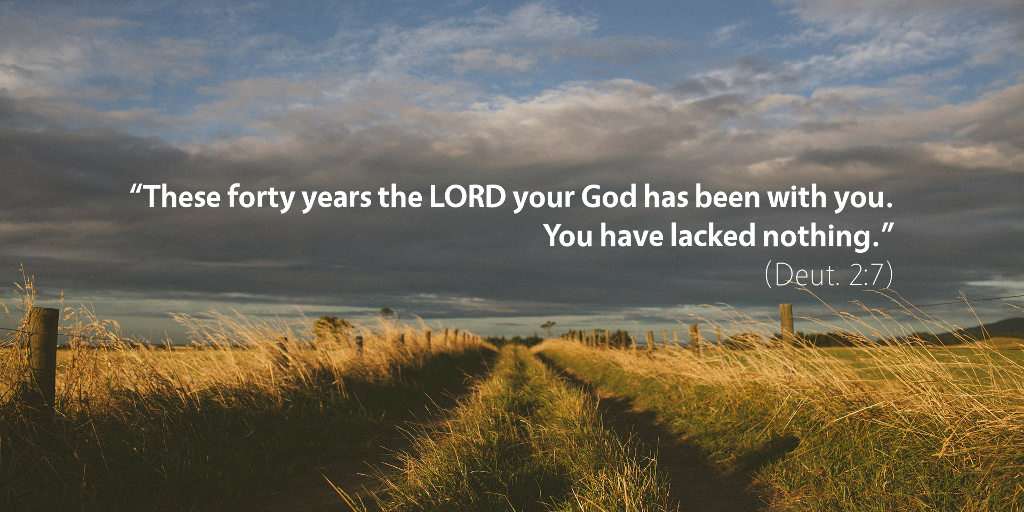Bible Readings for May 29th
Deuteronomy 2 | Psalms 83–84 | Isaiah 30 | Jude 1
As we discussed yesterday, Deuteronomy gives us Moses’s final sermon before his death. It may seem strange, then, that Deuteronomy, the “second law,” does not begin with the law at all. Instead, Deuteronomy opens with a lengthy retelling of Israel’s history, beginning from the point that Israel left Mount Sinai in the land of Horeb (Deut. 1:6). Then, Moses retells the story of Israel’s refusal to enter into the Promised Land (Deut. 1:19–46), their wanderings through the wilderness (Deut. 2:1–25), and their victories over King Sihon (Deut. 2:26–37) and King Og (Deut. 3:1–22). Finally, Moses recounts his own, desperate prayer for mercy to enter the Promised Land (Deut. 3:23–29), which we will look at in more detail in tomorrow’s meditation.
So, why would Moses start with a story? If this is to be an exhortation for the people of Israel to keep the law, why not segue immediately into the Ten Commandments, which don’t come up until Deuteronomy 5? To begin, these stories remind us again that Yahweh’s relationship with Israel begins with grace, not law. Yahweh did not offer the law as a means for his people to gain his favor as though the law were a qualification exam. Instead, from the beginning Yahweh had specifically chosen Abraham out of all peoples on the face of the earth, and he had redeemed Abraham’s offspring from their bondage in Egypt.
The stories we see here, then, underscore the fact that Yahweh has continued to remain faithful to his people, even during their time in the wilderness. The first story we encounter tells us about Israel’s failure to trust Yahweh to enter into the Promised Land and about Yahweh’s punishment for their sin by dooming that generation to die in the wilderness. But then, Moses reminds Israel that Yahweh still provided for all of their needs, so they “lacked nothing” (Deut. 2:7). And more than that, Moses reminds them of the great military victories Yahweh gave them over King Sihon and King Og, by which Israel received the firstfruits of their inheritance in the land east of the Jordan.1
Even though Deuteronomy seems, at first, to be the “second law” for Israel, make no mistake—Deuteronomy is about Yahweh’s grace to his people. Yahweh does not call his people to be their taskmaster, but to be their God—and even their husband. In the law, rather, Yahweh graciously reveals what he wants from his people, that they would love him with all their heart, soul, mind, and strength and that they would love their neighbor as themselves.
In the same way, Jesus demands that we obey his commandments (e.g., John 14:15), but he gives his commandments to those whom he has already chosen in love (John 15:16). God’s grace transcends the law, running behind, in front, beneath, and above it.
1 See the May 23rd meditation from Numbers 32.
Podcast: Play in new window | Download (5.2MB) | Embed
Subscribe: Apple Podcasts | RSS | More

Scripture quotations are from The Holy Bible, English Standard Version copyright © 2001 by Crossway Bibles, a division of Good News Publishers. Used by permission. All rights reserved.


